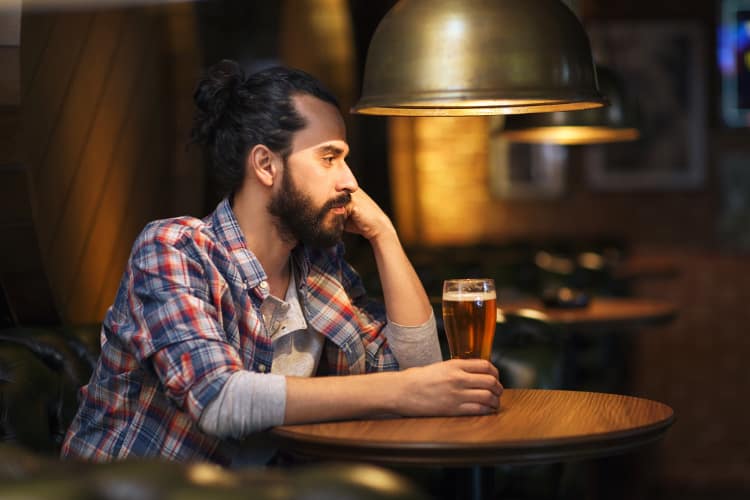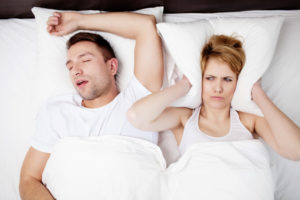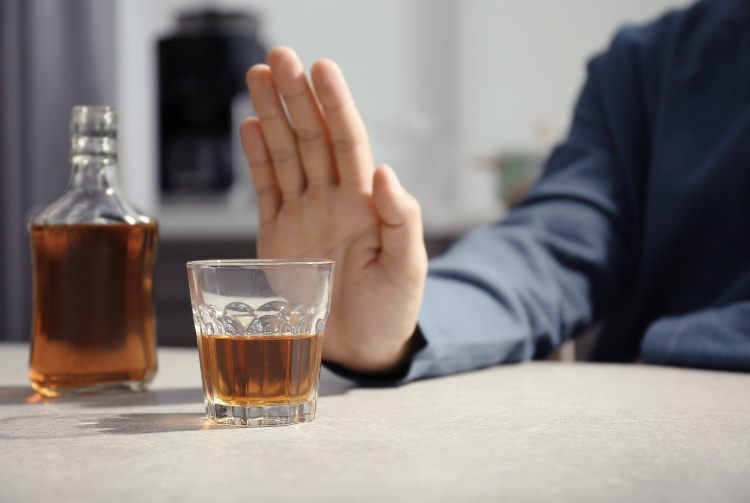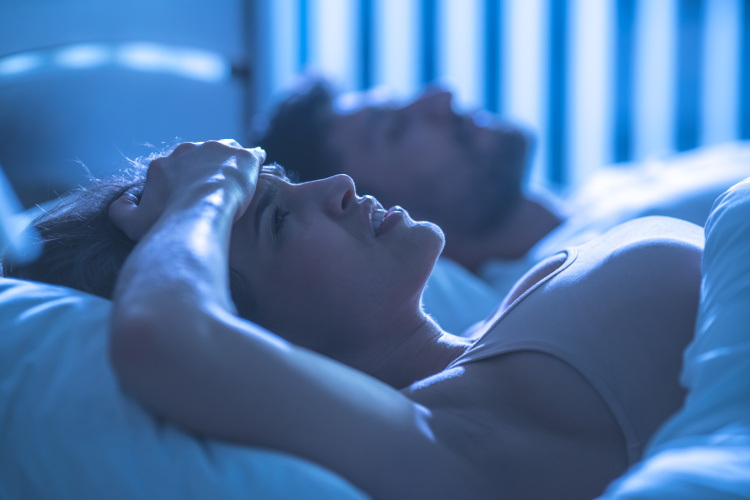Alcohol and Sleep: How Drinking May Be Keeping You from a Full Night’s Rest

Some people joke that they don’t drink wine because it makes them sleepy, which helps fuel the rumor that drinking alcohol can be used as a type of sleep aid.
Roughly 20 percent of adults rely on alcohol as a sleep aid. As it turns out, however, doctors suggest that while drinking alcohol close to bedtime may help you fall asleep initially, it will hinder the quality of your sleep overall.
How does this happen?
Curious if hypnosis could help you sleep well?
Take our hypnotizability test and find out!
Alcohol Disrupts Your Circadian Rhythm
Your body’s circadian rhythm is responsible for managing your biological clock. Any time you consume something—food or drink—your circadian rhythm is affected, and that can disrupt the function of major organs such as your liver and gut.
The second half of the night is when the deepest sleep occurs, which is the most necessary period for truly restorative rest. Unfortunately, it’s also the period when alcohol affects your sleep cycle the most.
The closer to bedtime you drink, the worse effect it will have on your sleep. The effect can be so severe some people have been known to sleepwalk while under the influence of alcohol.
Alcohol-Induced Sleep Isn’t Real Sleep
Though it might feel like alcohol is making you tired, you might actually be on the verge of passing out—not falling into deep, necessary REM sleep.
What’s the difference?
When you pass out, you’re more likely to wake up at some point in the middle of the night, unable to fall back asleep.
You’re Building a Dependency
The more you drink, the greater your body’s tolerance will become, which means you’ll need to drink more in order to fall asleep. This is a recipe for creating an alcohol addiction.
For those who take prescription sleep aids, combining them with alcohol can increase the risk of accidents and a potentially fatal overdose.
You Get Up to Pee More
Alcohol suppresses anti-diuretic hormone, which regulates the water absorbed by your kidneys. As a result, that fluid gets dumped into your bladder, causing you to urinate more. The lining of your bladder also becomes disrupted, which can make it feel full even when it isn’t.
Constantly getting up to empty your bladder will also have a negative effect on your body’s ability to rest properly. Not only are you interrupting sleep cycles, but you’re losing important electrolytes the more you need to urinate.
While both men and women are affected, increased urination during the night tends to be worse for women.
Alcohol Can Contribute to Breathing Problems
For those who already experience disordered sleep patterns, such as sleep apnea, alcohol is known to worsen those effects.
 It’s possible for alcohol-induced sleep apnea to develop in individuals who have never experienced it when sober.
It’s possible for alcohol-induced sleep apnea to develop in individuals who have never experienced it when sober.
Alcohol relaxes the head, neck and throat muscles, which can cause snoring to worsen (and if that doesn’t disrupt your sleep, then it could definitely affect your partner’s).
Without proper rest, your concentration is disrupted, which could negatively impact your work performance. Not to mention the negative experience of a hangover, which can result in a longer sleep than what your body needs or is used to. And contrary to popular belief (“You must have really needed the rest”), too much sleep can actually leave you feeling more tired instead of well-rested.
Alcohol Disrupts Normal Brain Function
Your brain recharges during your nightly rest. Part of that process involves activity that we know as dreaming.
Under the influence of alcohol, your brain chemicals are disrupted, and serotonin is effectively switched off. Consequently, you are less likely to recall your dreams, which means your brain probably didn’t recharge as well as it should have.
We may not quite understand why we dream, but nonetheless, dreams are an integral part of brain function and human physiology.
You’ll Sweat More
Alcohol widens your blood vessels, which has an effect on your body temperature by widening your blood vessels. When your skin feels warm, you are more likely to sweat, which can make for an uncomfortable sleep.
While anyone can experience a change in body temperature after drinking alcohol, the effect tends to occur more commonly in people with severe dependency issues.

Curious if hypnosis could help you sleep well?
Take our hypnotizability test and find out!
Drink Smarter, Sleep Better
Interestingly, restaurant “happy hours” are often structured around the ideal time of day for drinking (it’s like they’ve done their research!). So you don’t have to give up after-work cocktails with friends or co-workers—or a beer with dinner—to sleep better. Even a single glass of wine before bed is unlikely to cause problems.
As with so many things, moderation is key.
Doctors recommend that you limit your alcohol consumption to 2 or 3 times per week (although not during the same day) in order to maintain good health and sleep habits. And regardless of how much you drink, there are steps you can take to reduce the negative effects of alcohol. For every drink you consume, have at least 2 glasses of water. Drink alcohol with food. And have your last drink 3 to 4 hours before bedtime.
If you are struggling to limit your drinking and need help reclaiming and maintaining your personal power over alcohol, This Naked Mind offers a unique program that uses science-based research and techniques you can start using today. And check out our This Naked Mind program review.
You may find that the improved sleep, increased daytime energy, and better mental clarity make the lifestyle change well worth the effort.
Some of the links in our site are affiliate links, which means that if you choose to make a purchase, we will earn a commission. This commission comes at no additional cost to you (and in some cases, you’ll save money because we’ve negotiated special discounts). Please understand that we recommend these products because we believe they are the best resources available, not because of the small commissions we make if you decide to buy something. Please do not spend any money on these products unless you feel that you need them or that they will help you achieve your goals.

